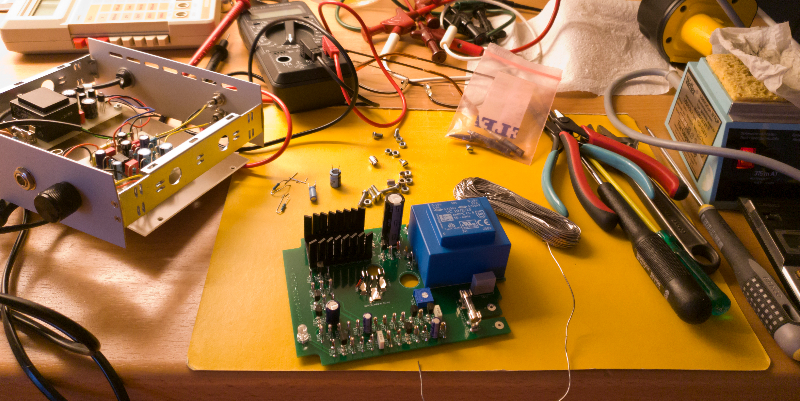The course is about design of robust mechatronic systems with a clear emphasis on how the electronic hardware is appropriately designed.
The labs can contain both experimental studies and simulations, in order to give the opportunity to create both broad and deep understanding of the function of the involved electronics.
MF2043 Robust Mechatronics 6.0 credits

In the course you will have the opportunity to practice your hands-on engineering skills related to mechatronics hardware and firmware. You will design and build printed circuit boards, and you will write and run the needed firmware to control them. You will learn about challenges and issues related to signal levels, noise, printed circuit board layout, measurements and testing. You will be able to discuss your insights with the teachers in the lab.
Information per course offering
Information for Autumn 2026 Start 24 Aug 2026 programme students
- Course location
KTH Campus
- Duration
- 24 Aug 2026 - 23 Oct 2026
- Periods
Autumn 2026: P1 (6 hp)
- Pace of study
50%
- Application code
10605
- Form of study
Normal Daytime
- Language of instruction
English
- Course memo
- Course memo is not published
- Number of places
5 - 72
- Target group
- Mandatory for TMEKM1 Open for all students as long as the course can be included in the programme. The course is suitable for incoming exchange students.
- Planned modular schedule
- [object Object]
- Schedule
- Schedule is not published
Contact
Course syllabus as PDF
Please note: all information from the Course syllabus is available on this page in an accessible format.
Course syllabus MF2043 (Autumn 2024–)Content and learning outcomes
Course contents
Intended learning outcomes
After passing the course, the student should be able to:
1. Design electronic systems that are robust with regard to function, environmental impact and electromagnetic compatibility
2. Design and produce electronic subsystems such such as power supply, drives, filters and current sensors
3. Adapt properties of analogue and digital electric signals so that they in a robust way can interact with digital electronics for example in the form of a microcontroller
4. Design and produce mechatronic systems containing inter alia connected electronic subsystems similar to the above-mentioned
Literature and preparations
Specific prerequisites
A Bachelor of Science, subject area mechanical engineering or an equivalent discipline.
Has passed the course MF1016 Electrical engineering or equivalent knowledge in electrical engineering.
Has passed the course DD1320 Applied computer science/DD1321 Applied programming and computer science or equivalent knowledge in programming technique.
Recommended prerequisites
Basic knowledge in microcontroller systems and C-programming.
Literature
Examination and completion
Grading scale
Examination
- LAB2 - Laboratory work, 4.0 credits, grading scale: P, F
- TEN2 - Written examination, 2.0 credits, grading scale: A, B, C, D, E, FX, F
Based on recommendation from KTH’s coordinator for disabilities, the examiner will decide how to adapt an examination for students with documented disability.
The examiner may apply another examination format when re-examining individual students.
If the course is discontinued, students may request to be examined during the following two academic years.
Examiner
Ethical approach
- All members of a group are responsible for the group's work.
- In any assessment, every student shall honestly disclose any help received and sources used.
- In an oral assessment, every student shall be able to present and answer questions about the entire assignment and solution.